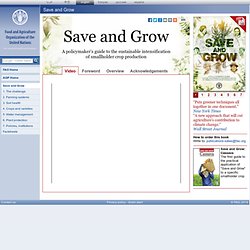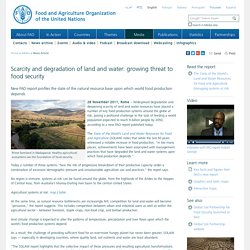

About Us. Envision what the very best minds in food science can achieve when they work together: providing each and every person on the planet with access to a safe, healthy, abundant food supply, both today and tomorrow.

For 75 years, the Institute of Food Technologists (IFT) has been unlocking the potential of the food science community by creating a dynamic global forum where members from more than 100 countries can share, learn, and grow, transforming scientific knowledge into innovative solutions throughout the food system for the benefit of people around the world. We’ve helped the members of this community connect both in person, through scientific and technical education venues and forums such as the world’s largest annual food expo, and virtually, through our publications and other resources. As a scientific society with vision, IFT is feeding the minds that feed the world. Chromeless Video Player branded for IFT. Partnership for Sustainable Communities. Save and grow - A new paradigm of agriculture. Foreword With the publication of Save and Grow in 2011, FAO proposed a new paradigm of intensive crop production, one that is both highly productive and environmentally sustainable.

FAO recognized that, over the past half-century, agriculture based on the intensive use of inputs has increased global food production and average per capita food consumption. In the process, however, it has depleted the natural resources of many agro-ecosystems, jeopardizing future productivity, and added to the greenhouse gases responsible for climate change. Moreover, it has not significantly reduced the number of chronically hungry, which is currently estimated at 870 million people.
The challenge is to place food production and consumption on a truly sustainable footing. Media Centre: Scarcity and degradation of land and water: growing threat to food security. Prime farmland in Madagascar.

Healthy agricultural ecosystems are the foundation of food security. 28 November 2011, Rome – Widespread degradation and deepening scarcity of land and water resources have placed a number of key food production systems around the globe at risk, posing a profound challenge to the task of feeding a world population expected to reach 9 billion people by 2050, according to a new FAO report published today. The State of the World’s Land and Water Resources for Food and Agriculture (SOLAW) notes that while the last 50 years witnessed a notable increase in food production, “in too many places, achievements have been associated with management practices that have degraded the land and water systems upon which food production depends.”
Today a number of those systems “face the risk of progressive breakdown of their productive capacity under a combination of excessive demographic pressure and unsustainable agriculture use and practices,” the report says. Media Centre: Video: Hubert George. CGIAR Home.